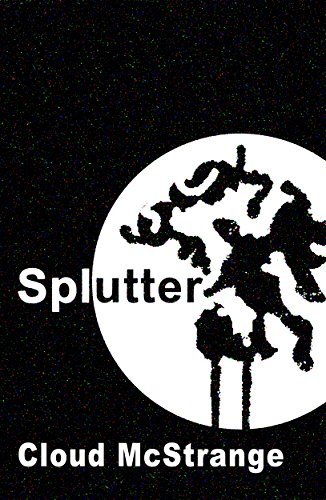Reading this novella was a bit like being in a psychiatrist’s office doing the Rorschach inkblot test. Individual readers will probably come up with their own theories as to what it all means; personally, I was bemused but curiously charmed by this sort of Beckett-like theatrical monologue in which an un-named narrator (Cloud?) decides to ‘explain himself’ through, he tells us, different conversations. The result is pure absurdism, wildly inventive and very funny in parts. Cloud (?) certainly has a way with words, which he strings together impressively while not necessarily conveying any clear message. But then Cloud, as his name suggests, is somewhat nebulous himself being a bit of a protean shape-shifter, sometimes assuming a male form, sometimes a pregnant female, and we’re told, in the past manifesting himself in the form of parakeet, kangaroo or snail. He/she/it also inhabits a time and place of some elasticity. He can be found near a dumpster full of rat shit, in prison or in a turtle shell, having purchased, via a Premium package, the ability to move from present to future then past. Addressing one or more interlocutors, he expounds on numerous subjects: exploding fruit baskets, the spread of emotional fallout, water from Mars and the availability of buying ‘having fun’ credits on the black market.
The overall impression is a satire on modern, trendy, consumer-driven, society. Cloud, creator of the Slick Dick Enterprise–‘unlimited profit...the final frontier’–is a wheeler-dealer with the gift of the gab, out-sourcing all his social interactions, exploring new avenues such as bi-location technology, and using a mandatory purchase order to buy people’s opinions which he then retrofits to suit his needs. He can sell anything to a public willing to be conned into buying–insults, compliments, hopes, recipes for happiness. ‘Celebrate’, he tells them, ‘finger-paint with your toes,’ ‘make love to disaster’. ‘The con is their life in general,’ he observes, commenting on the trend to breathe gasoline instead of ‘un-clean’ air, resulting in huge queues at petrol stations and a reliance on foreign suppliers.
The ending of the book is equal to the beginning and the middle. If you asked me what the whole thing was about, my answer would probably be ‘42’. But for its breadth of imagination and often dazzling style of writing, it will surely charm readers looking for something well off the beaten track.

